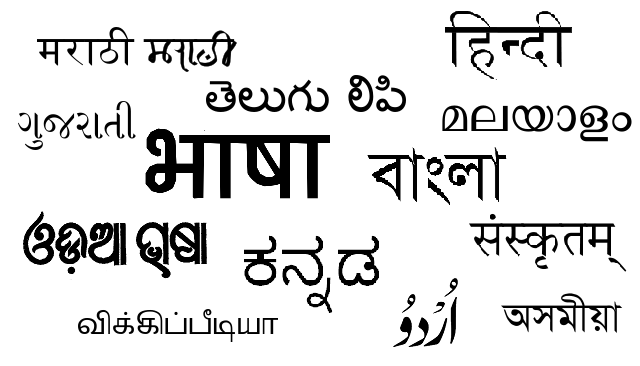
“If you talk to a man in a language he understands, that goes to his head. If you talk to him in his language, that goes to his heart,” famously said Nelson Mandela. Of course, he needs no introduction. His thoughts are mirrored in Frank Smith’s quote about the importance of learning languages as a contemporary psycholinguist recognized for his contributions in linguistics and cognitive psychology, both nationally and internationally. “One language sets you in a corridor for life. Two languages open every door along the way,” he said.
These two quotes seem important to drive home the point I want to emphasise in this piece.
After the new NEP came into existence, twitter and other social media platforms have become sort of a battle ground between the South (particularly Tamilnadu) and the North over the proposed three language policy which states that a child should compulsorily learn three languages, with at least two Indian languages. Tamil Nadu which had followed the policy of two language so far, sees this move as the centre’s ploy to impose Hindi on them. However, unlike the National Education policy-1968 which mandated teaching of Hindi in non-Hindi speaking states, the latest NEP does not explicitly mention that the ‘third’ language should be Hindi. Instead, the policy noted that three languages learned by children will be the choices of states and the students, provided that the two languages are native of India. This means, besides Tamil and English, students must also learn one more Indian language which may or may not be Hindi.
Still one can see that the North and South is split wide open over this. Hindi aficionados are swinging the debate on one side while the Tamil culture guards the other. They see it as an implicit attempt by the central govt to push Hindi in the south. There reasoning is that since Northern belt is BJPs vote bank they are trying to do so with a political oversight.
Hindi speaking belt is trying to dish out the logic that one country should have one language.
And I am left thinking, shouldn’t a language be the bridge to connect people’s thoughts and thus culture and not further the divide? I look at the proposed three language policy as a great opportunity for North Indians to learn at least one south Indian language and vice versa. India is a multi-racial, multi linguistic and multi religious society which thrives in its diversity. To have a demography which is multilingual is certainly an advantage.
Is Hindi the only national language?
There are some arguments against ‘Hindi as the national language’ narrative and they do hold some water. The constitution of India has stipulated the usages of Hindi and English to be the two OFFICIAL LANGUAGES of communication for the national govt, nowhere has it bestowed the position of ‘national language’ to Hindi. Tamil/Telugu/Malayalam/Assamese/ Manipuri etc are as much a national language as Hindi.
Sadly, this whole Hindi only/ Tamil only thing is bringing forth a scenario that goes against the spirit of what a language is supposed to represent- communication. A case in point is a recent viral video of a secretary in Ministry of AYUSH. In a three-day virtual training programme for Yoga master trainers that was conducted between August 18 to 20, Rajesh Kotecha, secretary, Ministry of AYUSH, insisted on speaking only in Hindi. Perhaps that would be acceptable if he said in his defence that his English was not good. But it is unpardonable to say that those who didn’t understand Hindi, could leave. There were around 350 people from different states participating in the webinar, which included 37 from Tamil Nadu. (according to the National Herald report). In an event that’s national, one can’t simply go on speaking in a language that’s not understood by all. Also, if a chosen candidate for a central govt service is made to go through basic Hindi training for the ease of functioning, the same should be true for the North Indians, to learn basic English (or other south Indian languages) in order to reach out to the masses.
I love expressing myself in Hindi/Maithili, but then I also understand that the speakers of other Indian languages would love to express themselves in theirs too. In fact, it may come as a surprise to many north Indians who are increasingly ignorant of the Indian heritage, that the Tamil language is recognized as the oldest surviving language in the world and it is the oldest language of the Dravidian family. This language had a presence even around 5,000 years ago. (https://timesofindia.indiatimes.com/readersblog/whatsup-university/oldest-language-of-the-world-19460/). Of course, Sanskrit too is one of the oldest languages in the world but fell out of common usage around 600 B.C.
English is coming out as a clear winner amidst this linguistic chaos
Amidst this debate of ‘why should/shouldn’t Hindi be imposed on the non-Hindi speaking population’, it’ is English, which looks like a clear winner. Much as we may claim to be a Hindi/ Tamil lover, the fact is, English is increasingly becoming the language of middle-class children across India as it provides the kind of mobility and opportunity that no other Indian language does. English has opened the doors to great job mobility in the past decade and much economic success. In a country of so many varied languages, English is the only linguistic commonality. It is gaining firm footing as a ‘unifying language’, so much so that it is increasingly becoming the de facto mother tongue in urban families.
Its status as a language of economic success is making it a favourite even amongst the lower socioeconomic strata. For them learning English is aspirational. Last year while traveling to my village in Bihar, I saw hoardings of various ‘Private English medium schools’. While I can’t comment on the quality of education imparted in those schools, what I couldn’t ignore was the fact that parents in these areas were ready to walk the extra mile to provide their children an education that was ‘English Medium’, because they equated it with success in the globalised world.
Higher up the economic ladder though, it is more like ‘feeling a part of the developed world’. Social media and platforms like Netflix too have added to this. Not having watched ‘Dark’ or ‘Friends’ or ‘Two and a half men’ or other such ‘world famous’ series is almost an anathema in any institution worth its salt. This entire culture has a term- ‘Cosmo’
Are we really Cosmo though?
According to Webster Dictionary, cosmopolitan means having worldwide, rather than limited or provincial scope or bearing /composed of persons, constituents, or elements from all or many parts of the world. Basically, when we say cosmopolitan, we mean someone who is widely travelled and familiar with a variety of cultures, customs and types of people. A cosmopolitan person is free of prejudices and stereotyping traits. He/she thinks above ‘one is better over the other’ line. The question is, are we?
We need to adapt to International ways but not at the cost of our own
English surely is unifying us with the rest of the world, or should I say with the rest of India, but why should it alienate us from our familial and cultural roots! Wouldn’t it be great and enriching to be able to read a Mrichchkatikam (Sanskrit) or a Manimekalai (Tamil) along with a ‘Pride and Prejudice’! Perhaps then we can call ourselves a true cosmopolitan- free of prejudices and set notions. Unfortunately, in our over eagerness to go ‘English’ (an antithesis of cosmo actually), we are losing what was ours- the sense of ‘Indian-ness’. We all shall collectively (both North Indians as well as South Indians) be responsible for the death of Indian languages and dialects if we continue fighting for the superiority of one language over the other.
It is time to thrive in our diversity
It is true that a shared culture in the form of a common language, religion, race or other common characteristics do help in building solidarity among the people of the nation. However, 75 years of independent India’s history have shown that national consciousness need not be built solely on shared traits among the populace
Besides, linguistic diversity is a cultural advantage. We need to stop treating it as a handicap and wishing for a homogeneous single language (which mostly is political anyways). Let us not hesitate to converse in English if the other person does not understand your mother tongue. At the same time, lets put in effort to learn his language. May be then what we convey, will go not only to his head but to his heart as well, as Nelson Mandela said.
Copyright © Aradhana Mishra


Well written Bhabhi
Learning an additional language is a great asset.
Politics on it is quite the opposite.
Thank you Shishir.Yeah..there has been a lot of politics around this issue. High time that the energy and resources are put to better use.